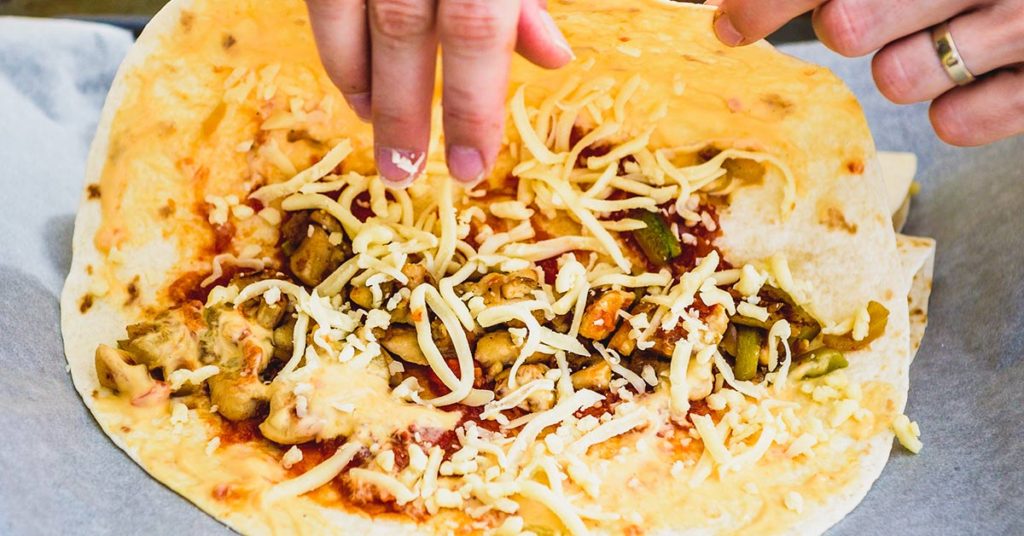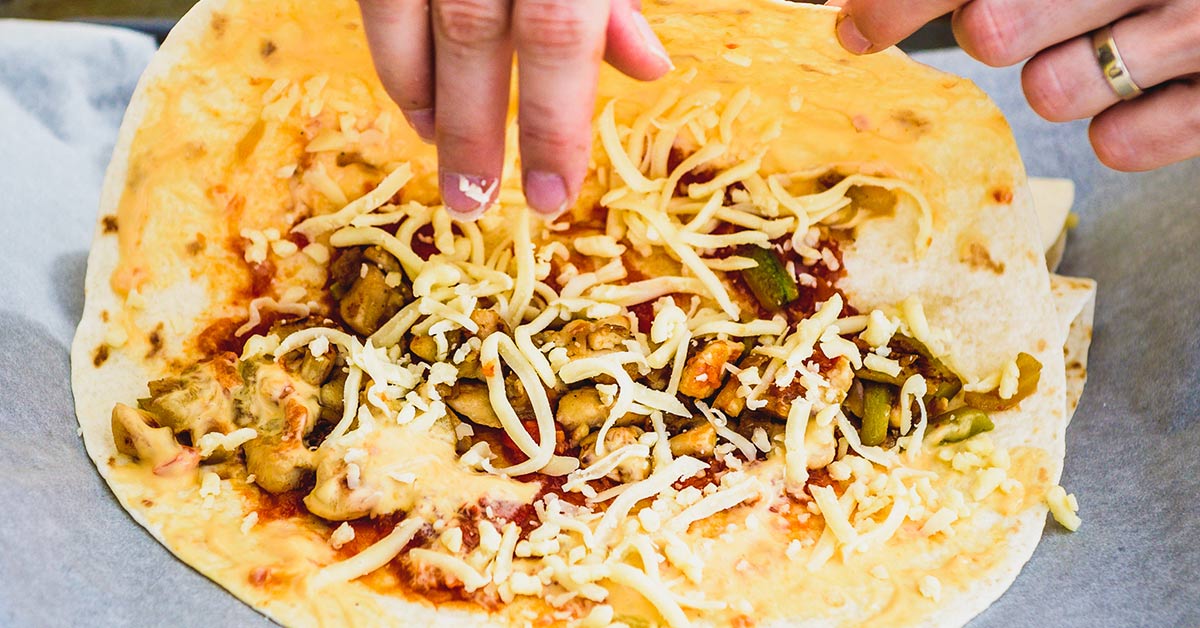A mom from Cambridgeshire, U.K., sparked controversy online when she cooked and ate her placenta. The 27-year-old shared photos of a burrito filled with beef, shredded cheese, sour cream, and placenta. She believes that it benefits her health by enabling ‘quick recovery, less chance of post-natal depression and an increase in milk production.’
Despite these stunning claims, there is no strong evidence to show eating placenta can provide these benefits. Even if there was, there’s the “ick factor” many people can’t get over. But this mom takes pride in her unusual practice.
A Mom Ate Her Placenta in a Chilli and a Burrito
Ketrina Hill gave birth to her firstborn, Finnley, in January 2016. She had heard about the placenta’s potential benefits but couldn’t afford the expensive process of having it encapsulated into pills. So she turned to a more traditional way of consummation. Inspired by other mothers, Ketrina cooked a beef chili and ate her placenta that way. When her daughter, Luna, came into the world in April 2020, she ate it in the form of a burrito.
The Placenta Burrito
To make her burrito, Ketrina chopped up the organ and slow-cooked it in a pot with some beef. Finally, she placed it into a wrap and added her cheese toppings.
Both times, Ketrina froze the placenta as soon as she returned from the hospital to keep it fresh until she had a chance to cook it. She claims to have experienced good health and wellbeing after her first birth and attributed that to the placenta. So she was eager to consume it again her second time around.
“Seeing people in the media having a positive approach to ingesting placenta will help spread knowledge about how good it is.
“I had a great recovery with my first, felt energized and was doing everything I was doing before birth very quickly and felt good in myself.
“I didn’t know whether I felt so good because I had eaten the placenta, so I made the decision to do it again after my second baby and had the same experience.”
Because of this, she suggests other mothers eat the placenta, saying, “I would highly recommend it, it was an amazing experience, and I believe it led to a quick recovery. I was a little unsure of what it would taste like, but it was just like really rich irony beef.
“It was slightly tough in the chili, which is why I slow cooked it the second time; you couldn’t even tell which was the beef and which was the placenta.” [1]
Read: Mom Shamed Online For Breastfeeding Her Four-Year-Old Son
Should Mothers Eat Their Placentas?
Eating the placenta after birth is known as placentophagia, and it’s common in alternative health communities. It became more widespread when celebrities openly took to the practice, including Chrissy Teigen and the Kardashians.
Placentophagia, according to is supporters, supposedly benefits the mothers by:
- Preventing postpartum depression
- Increasing energy
- Reducing pain
- Improving lactation
- Improving bond with the baby
Women consume the placenta in pill-form, smoothie-form, or as any other piece of meat. Some women eat it raw immediately after giving birth. [2]
The Risks of Eating the Placenta
Some women reported positive effects, similar to the list above, but some had negative experiences, including:
- Increased vaginal bleeding
- Digestive issues
- Increased uterine contractions
- Anxiety
- Intensified hot flashes
There’s little research to prove the benefits of placentophagia. The studies that do exist feature animals or are out of date. Moreover, a study from 2016 found that placentophagia could lead to late-onset group B Streptococcus infection. This infection could be serious, and in some cases, deadly.
The CDC released a statement warning mothers against taking placenta pills after a baby tested positive for this infection. The placenta pills the mother had taken contained the same bacterium that had infected the baby. CDC wrote, “Placenta ingestion has recently been promoted to postpartum women for its physical and psychological benefits, although scientific evidence to support this is lacking.” [3]
It’s easy for the placenta to become contaminated. “When the placenta passes after the baby through the birth canal, it will also come in contact with these pathogens lingering in the recto-vaginal area. Eating that contaminated placental tissue could then further expose the woman and her baby to those invasive pathogens,” the lead author of the CDC report and infectious disease expert Dr. Genevieve Buser.
The statement concluded with, “The placenta encapsulation process does not, per se, eradicate infectious pathogens; thus, placenta capsule ingestion should be avoided.” This could be because there are no health and safety regulations on the encapsulation of placenta pills. [4]
More Research is Needed
However, a recent study found that the placenta isn’t unsafe if it’s handled properly. The study found no increased risks to the babies born to mothers who ate their placenta. [5] But another study discovered little difference in health reports between the mom taking placenta pills and those taking a placebo. [6] More research is needed to prove either way. Therefore, it’s best to speak with a health care professional before trying placentophagia.
If you do decide to eat the placenta, make sure it is cooked properly to kill any dangerous bacteria. Freeze it if you are not consuming it right away. Also, don’t rely on the placenta to heal symptoms of postpartum depression. Contact your doctor if you have feelings of depression or if you feel sick after you ate the placenta.
Keep Reading: ‘I don’t want to include my stepdaughters in my pregnancy announcement’

Sources
- “Mum Who Ate Her Placenta With Chilli And Beef Burrito Says She Recovered From Birth Quicker.” Unilad.Julia Banim. January 31, 2021
- “Is Eating Your Placenta Safe?” Healthline. Annette McDermott. July 23, 2018
- “Morbidity and Mortality Weekly Report.” CDC. Genevieve L. Buser, MDCM. June 30, 2017
- “Opinion: Placenta-Eating Went Mainstream When Many Doctors Stopped Listening.” NPR. Daniela Blei. December 27, 2019
- “Placentophagy among women planning community births in the United States: Frequency, rationale, and associated neonatal outcomes.” Birth. Daniel C Benyshek, Melissa Cheyney, Jennifer Brown, Marit L Bovbjerg.May 2, 2018
- “Placentophagy’s effects on mood, bonding, and fatigue: A pilot trial, part 2.” Women Birth. Sharon M Young, Laura K Gryder, Chad Cross, David Zava, David W Kimball, Daniel C Benyshek.” November 27, 2017

